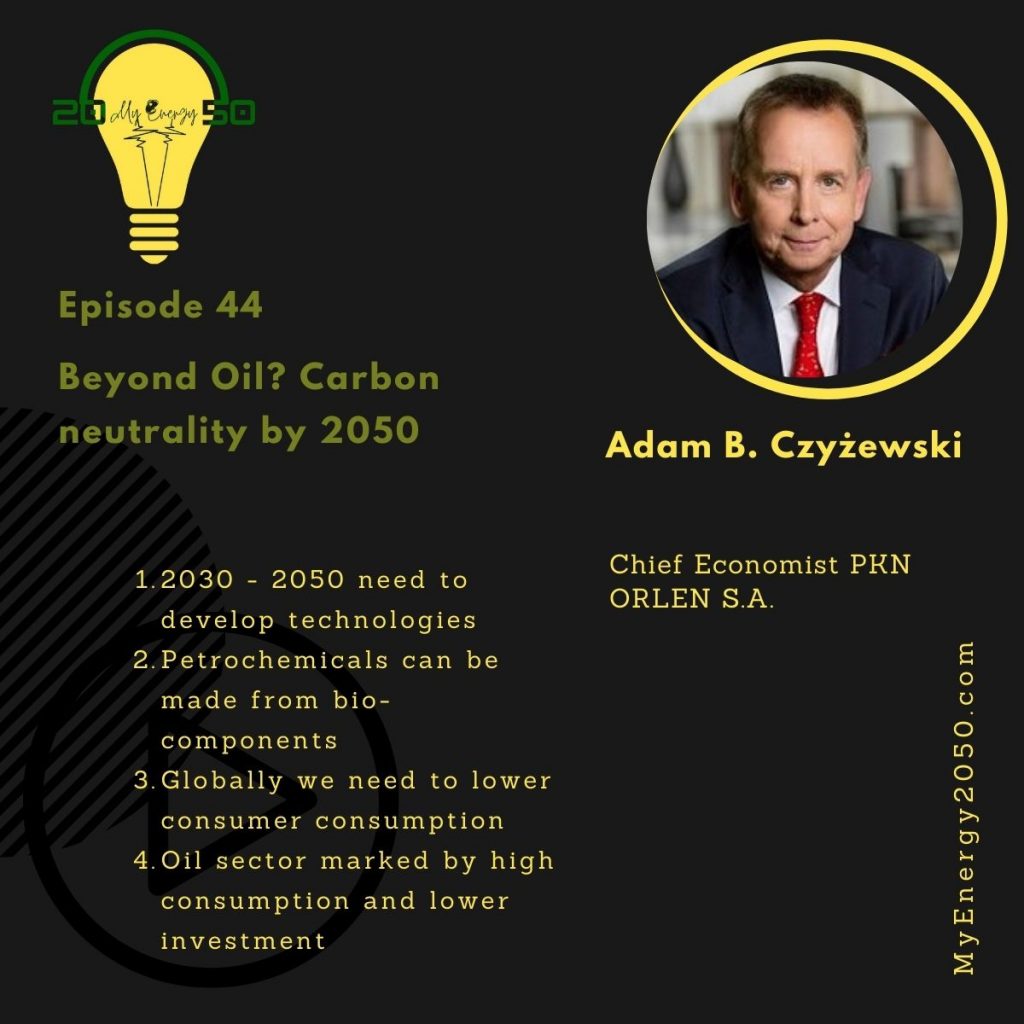This week we speak with Adam Czyzewski, the chief economist at PKN Orlen. I’ll describe PKN Orlen as a diversifying oil and gas firm.
I got the opportunity to sit down with Adam while I was in Warsaw and I’m extremely grateful for his time and his willingness to share his thoughts on the energy transition. It is possible that some listeners may object to my conversational style sit-down with a representative of the oil and gas world. I remember a conference I attended in 2019 when the Chief Economist for Equinor got not only a frosty reception but a hostile reception from the academic and policy audience at a conference on ‘Beyond Oil’.
My approach to understanding and assisting in the energy transition is to listen to a range of opinions. In this interview, you’ll learn that Adam – before he joined PKN Orlen 12 years ago, was an outsider himself. He shares his perspective and questioning of the sustainability around not just fossil fuels but global consumption of energy and materials. Even, as he points out – that plastic turned out to be too cheap and good for a consumer society. Nonetheless, the lightweight and durable properties of plastic make it useful for the energy transition.
Adam provides a pivotal acknowledgment and voice that says, yes, our present consumption patterns are not environmentally sustainable – but he also outlines how an oil and gas firm CAN make the transition to be carbon neutral by 2050. This seems unbelievable from an oil and gas firm. At least, I was highly skeptical before speaking to him. But as you’ll hear, more than what I thought, could actually be achievable. Particularly, when you consider how the firm is diversifying into wind farms and investing in developing new technologies.

Depending on where you live and your background, you may be dismissive of what can we learn from a Polish oil and gas firm. As dedicated as the Polish government appears to be towards coal, it is important to understand the world, technology and firms are changing regardless of what is in the headlines. It may be a question of how fast we make the transition, or can we really believe fossil fuel firms will get rid of their fossil fuels? These are points for arguments. But at least from this interview, you’ll gain an understanding of the market forces at work that keep fossil fuels as petrochemical feedstocks in the near – if not distant – future.
One of the reasons I wanted to start a podcast was to share some of the interviews I have with experts while doing research. I’ve interviewed Adam in the past and I always found him very knowledgeable and holding a broad view of energy markets. In this episode, you’ll get more than an insight into the workings of oil and gas markets. You’ll get a thoughtful discussion on where companies are heading as they lower their carbon outputs and invest more into lower or zero-carbon technologies.
Dr. Michael LaBelle is an associate professor at Central European University in the Department of Environmental Sciences. He produces the My Energy 2050 podcast to change how we communicate and improve the energy transition.
